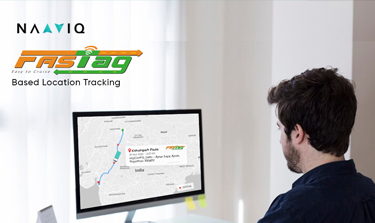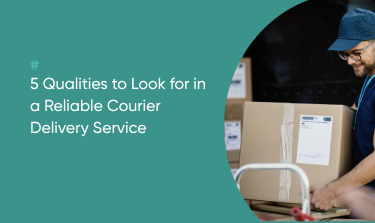How Cloud-Based Transportation Management Software (TMS) is Defining Transportation 4.0
The rise of digitalization in the logistics industry significantly influences how businesses transport goods, communicate, and engage in decision-making processes. Implementing cloud-based transportation management software (TMS) systems, an integral part of Transportation 4.0, is essential for organizations aiming to maintain competitiveness and agility in a rapidly evolving market.
What is Transportation 4.0?
Transportation 4.0 is an integral part of the Fourth Industrial Revolution (IR 4.0). It is the transformation of the Transportation Industry by integrating 4.0 technology . This transformation aims to create interconnected, automated, and efficient mobility solutions, enhancing the transportation process, efficiency, flexibility, and responsiveness to real-world events.
Key Characteristics of Transportation 4.0
- 4.0 Technology
- Multimodal Transportation
- Efficiency & Optimization
- Sustainability
- Customer Centric Approach

4.0 Technology
Benefits of Transportation 4.0
- Enhanced Efficiency: Real-time data and AI significantly improve route efficiency, reduce traffic congestion, enhance operational performance, and accelerate delivery times.
-
Improved Safety: Incorporation of sensors and AI with advanced driver assistance systems (ADAS) is markedly enhancing road safety.
-
Focus on Sustainability: EVs, optimizing routes, and integrating smart grid technology can substantially decrease emissions and fuel consumption.
-
Improved Customer Experience: Real-time tracking, predictive analytics, and EPOD options lead to improved customer satisfaction.
-
Economic Growth: An efficient and well-connected transportation network drives economic growth. It achieves this by reducing costs, speeding up commerce, and attracting investments.
The Modern Supply Chain: Complexity and Opportunity
In the current global logistics landscape, businesses encounter several challenges, including:
- Capacity underutilization resulting from static and non-agile transportation planning.
- A lack of real-time visibility may contribute to shipment delays and inefficiencies.
- Inefficient manual processes that are susceptible to human error and non-compliance.
- Data being isolated in silos can hinder timely and informed decision-making.
Cloud-Based TMS Software
A cloud-based Transportation Management Software (TMS) solution that helps improve how companies manage their Logistics & Supply Chain. It puts essential information and workflows onto a remotely accessible platform. Facilitates the ability of teams to strategize, implement, and modify their processes with speed and precision.
Traditional Approach |
Cloud based TMS Software |
| Higher Hardware Dependencies |
Unified, Real-Time Digital Ecosystem |
| Limited Accessibility |
Remotely Accessible |
| Time Consuming Deployment |
Instant Deployment |
| Limited Visibility |
Real-Time Visibility |
| Prone to High Risk due to Manual Intervention |
Reduced Risk via Automation |
Data Agility
Traditional logistics models result in the underutilization of capacity, inefficient routing, and poorly matched freight loads. Data agility, facilitated by cloud-based Transportation Management Systems (TMS), effectively addresses the Dynamic Load Clubbing & Automated Route Optimization. Analyzing the vehicle utilization for clubbing loads and Optimizing the Route, ensuring the efficiency and freight cost.
Transparency
Companies can refine operations by sharing accurate information and improving operational accountability with EPOD. This proactive approach helps to clear up uncertainties, resulting in more efficient and transparent operations.
Vigilance
The Logistics Control Tower is a central command hub that offers a clear and vigilant view and helps proactively identify and address logistics anomalies. This approach allows monitoring transactions and operations, improving visibility and control over established parameters.
Tracking & Tracing
End-to-end tracking allows businesses to monitor their shipments from dispatch to delivery confirmation. With SIM-based tracking, GPS integration, and FasTag technology, companies can oversee operations and make informed decisions that enhance logistics operations.
End-to-End Supply Chain Integration
Cloud-based Transportation Management software (TMS) solution seamlessly integrates and streamlines various processes through automated workflows, handling everything from processing and compliance to billing and dispatch, to improve operational performance.
Security and Sustainability
Cloud-based Transportation Management Solution (TMS) significantly focuses on adopting multi-layered security measures that protect sensitive transportation data and operations from potential cyber threats. Furthermore, leveraging cloud infrastructure can bolster sustainability efforts by encouraging green IT practices and enhancing the efficiency of energy and resource use within the transport and logistics sectors.

The NaaviQ Advantage
With NaaviQ’s next-generation cloud-based TMS software , logistics teams and shippers unlock the full potential of Transportation 4.0:
- One-Stop Solution: A comprehensive solution provides complete Real-Time Visibility into operations, features, and tools like a Control Tower, Load Clubbing, Advanced Analytics, and SIM-based,and GPS-based Track & Trace.
- Intelligent Automation: Reducing manual intervention, improving compliance, automating process addressing errors, and reducing costs.
- Advanced Security: Data is protected by multi-layered encryption and automated backup, ensuring confidentiality, integrity, and regulatory compliance.






